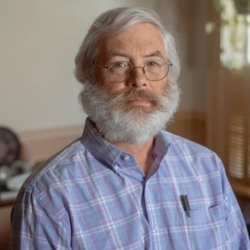
Dr. Raymond Turpin is the Clinical and Executive Director of The Pearl Institute, a nonprofit organization dedicated to advancing trauma-informed care and psychedelic-assisted therapies. He has worked in psychiatric hospitals, psychiatric emergency units, residential treatment facilities, juvenile detention, schools, and community mental health clinics. Before The Pearl Institute, Dr. Turpin co-founded Jackson County Psychological Services, which provided free and reduced-cost mental health services to the students and families of the Jackson County Public School system.
Psychedelic-assisted therapy is reshaping how clinicians understand trauma, resilience, and healing. With veterans, first responders, and countless others still struggling despite traditional treatments, many are wondering whether a different therapeutic pathway is finally within reach. What happens when medicine, neuroscience, and expanded states of consciousness converge? How can clinicians bring innovative treatments to people who need them most?
With decades of experience in trauma-focused psychology, Dr. Raymond Turpin believes that meaningful healing begins by accessing the deeper layers of the psyche that conventional talk therapy often can’t reach. He emphasizes the importance of preparation, safety, and intentional integration, noting that even profound non-ordinary experiences require commitment and follow-through to create transformation. Relational support, skilled guidance, and a willingness to engage with inner material can catalyze healing.
In this episode of Living Medicine, Dr. Sandy Newes talks with Dr. Raymond Turpin, Clinical and Executive Director of The Pearl Institute, about psychedelic-assisted trauma therapy. Dr. Turpin shares his path into MDMA research, how his team became an expanded access site treating four clients, and why his view of ketamine evolved through clinical experience.
This episode is brought to you by the Living Medicine Institute.
LMI is a training, resource, and membership program educating providers about the legal and safe use of psychedelic-assisted psychotherapy.
To learn more or participate, visit https://livingmedicineinstitute.com.
Leave a Reply
You must be logged in to post a comment.